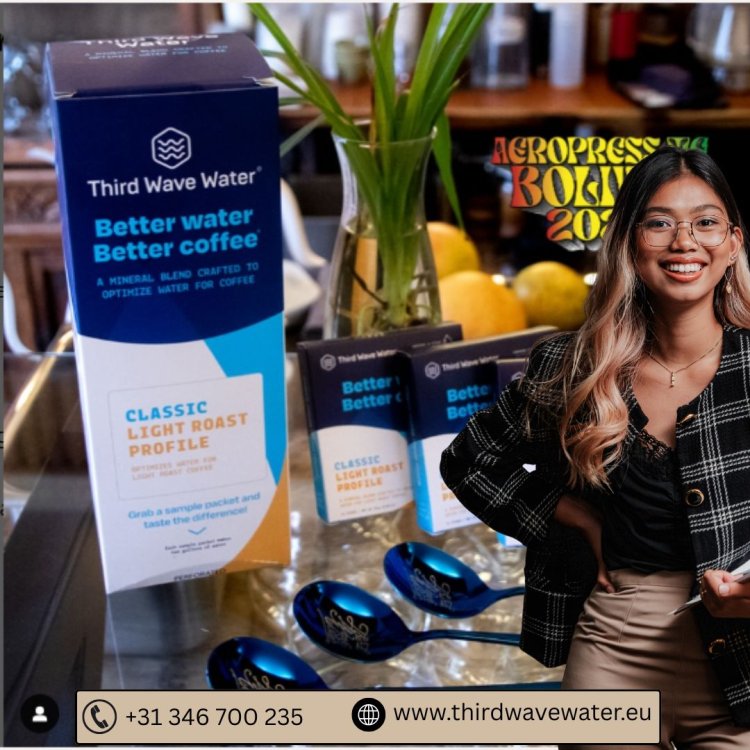The Best Water for Espresso Machines: Why Minerals Matter
Share this Post to earn Money ( Upto ₹100 per 1000 Views )

When crafting the perfect espresso, most of us focus on the coffee beans, grind size, and machine settings. But there's one crucial element that often gets overlooked—water quality. Using the wrong type of water can ruin your espresso and even damage your machine over time. In this guide, we’ll explore why distilled water, mineral additives like Third Wave Water, and proper hydration science are vital for brewing top-tier coffee.
Why Water Quality Is Crucial for Espresso
Espresso is over 90% water. That means the quality and composition of the water you use directly impacts flavor, aroma, and crema. Beyond taste, minerals in water affect the longevity of your espresso machine. Too many minerals can cause scale buildup; too few, and your coffee will taste flat.
Can You Use Distilled Water for Coffee?
Distilled water is pure H₂O—no minerals, no additives. That sounds ideal, right? Not quite.
Pros:
-
No mineral buildup in machines
-
No off-flavors from chlorine or other chemicals
Cons:
-
Flat taste due to lack of essential minerals
-
Can cause corrosion in some espresso machines (especially those with brass or copper components)
In short, while distilled water won’t harm your machine in the short term, it also won’t bring out the best in your coffee.
Adding Minerals to Distilled Water
This is where things get interesting—and tasty.
Minerals like calcium, magnesium, and bicarbonates play a crucial role in coffee extraction. They help draw out the complex flavors in coffee grounds. Adding a mineral supplement to distilled water allows you to precisely control the flavor profile of your brew while protecting your espresso machine.
Third Wave Water: The Barista's Secret Weapon
Third Wave Water gained popularity after its appearance on Shark Tank. It’s a small packet of minerals you add to distilled water (usually 1 liter or 5 gallons, depending on the packet size). These minerals are calibrated to meet the Specialty Coffee Association’s standards for optimal coffee brewing.
Benefits:
-
Perfect mineral balance for brewing
-
No scale buildup
-
Travel-friendly and easy to use
-
Ideal for use with a distilled water machine or store-bought distilled water (usually sold in 1-liter bottles)
It’s the go-to solution for professionals and enthusiasts alike who want consistency and control.
What Is a Distilled Water Machine?
A distilled water machine purifies tap water by boiling it, capturing the steam, and condensing it back into a liquid. The result is ultra-pure water, free from minerals, bacteria, and contaminants. Home distillers are great if you want to control your water source from start to finish—especially when using mineral packets like Third Wave Water.
Why 1 Liter Distilled Water Is Ideal
Most Third Wave Water packets are designed for 1 liter or 5-gallon mixes. For home brewers, a 1-liter size is perfect for convenience and freshness. Just pour, mix, and brew—no need to worry about measuring or wastage.
FAQ: Best Water Practices for Coffee
Q: Can I use tap water in my espresso machine?
A: Tap water varies in mineral content and can cause scale or off-flavors. Filtered or specially prepared water is recommended.
Q: Is bottled spring water good for espresso?
A: Some are fine, but others may be too hard or soft. Always check mineral content—aim for around 150 ppm total dissolved solids (TDS).
Q: What if I just use distilled water without adding minerals?
A: Your machine may suffer over time, and your coffee will likely taste flat or sour. Adding minerals is highly recommended.
Q: How long does a Third Wave Water packet last?
A: Each packet is intended for a specific water volume (usually 1 liter or 5 gallons). Once mixed, it should be used within a few days for best taste.
Conclusion
When it comes to making world-class espresso, water is just as important as your beans or machine. Distilled water, when combined with the right mineral additives like Third Wave Water, gives you complete control over your brew and prolongs the life of your equipment. Whether you’re a home barista or a coffee aficionado, investing in water quality will always pay off—one delicious shot at a time.
















